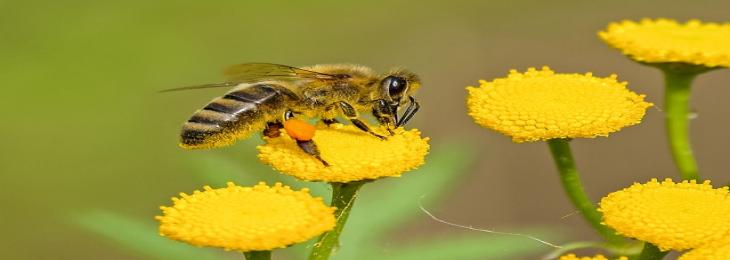The Decline of Pollinator Species Threatens the Ecosystem
Sep, 2021 - By SMI

Share
Habitats of some species important for pollination are disappearing lead to a loss in crop productivity.
A study was led by experts at Cambridge University using available proof. They created a risk index of our planet to study the source of the problem, and their consequences in six regions globally show a decline in pollinators.
Vital species that distribute pollen grains include butterflies, beetles, bees, hummingbirds, wasps, and bats. They help in the reproduction of almost 75% of plants bearing food and flowers. It is also resulting in a reduction of coffee beans, rapeseeds, and fruits. Dr. Lynn Dicks from the zoology department focused on the importance of these pollinator species and mentioned the serious trouble humans and animals would face in acquiring nutrition.
Destruction of the habitat they lived in, prominent land managing activities like grazing, fertilization, single-crop farming restless use of pesticides and climate have lead to the loss of pollinators. Experts estimated the risk of reduced crop pollination leading to a fall in quality and quantity of food and biofuel crops, instability in crop yield especially in the area between Africa and Latin America.
He also added that fluctuation in crops due to pollinators is than yielding crops like cereals. Uncommon climate situations like extreme temperature and rainfalls were already affecting and loss of pollinators have added in instability.
This will add to an increase in the hunger crisis of humans by risking food security. Pollinators are of great importance culturally. They contribute to music, art, literature, and ideas for technology and add to nature’s beauty. Pollinators are immediate reflections of the natural world around us.
North American society estimates a high risk if the decline in beehives continues as they are sources behind the rich almond and apple market and related industries. The extinction of these species is intangible. Colony collapse disorders” and been faced severely on a serious note by Americans. Africa, Asia-Pacific, and Latin America also face high risk especially in a region whose income is low and dependent on the crops grown due to pollination and rural population depend on it.
Share
Stratagem Market Insights
533 Airport Boulevard, Suite 400, Burlingame, CA 94010, United States
Delivery Center
403, 4th Floor, Bremen Business Center
Aundh, Pune, Maharashtra 411007
India
